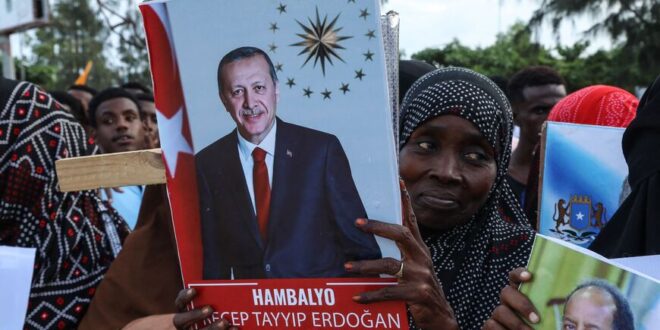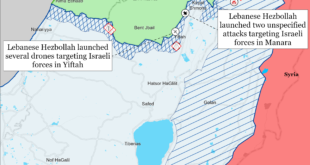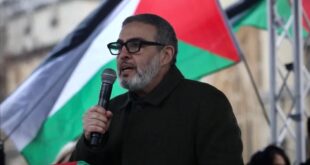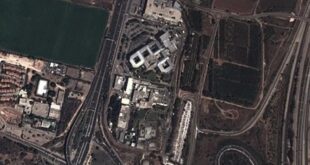Turkey’s efforts to expand its influence in Africa often align with those of Russia, with both Ankara and Moscow holding back from condemning military coups and seeking to capitalize on post-colonial resentments.
A series of military takeovers in West Africa, the latest occurring in Niger last month, reveal the extent to which Turkish and Russian efforts converge in trying to leverage political shifts to the detriment of former colonial powers, chief among them France, and expand their own influence in the region.
Keen to seize opportunities under the new African governments, Turkish President Recep Tayyip Erdogan and his Russian counterpart, Vladimir Putin, have refrained from condemning the putschists riding the wave of popular resentment toward the ongoing influence of former colonial powers and the failure of Western-led anti-terror operations in the region.
Speaking at a Russia-Africa summit in St. Petersburg shortly after the July 26 coup in Niger, Putin remarked that some manifestations of colonialism remain in Africa and underlie the instability in many regions on the continent. Erdogan has employed similar rhetoric for years, in particular targeting France.
Undermining France
In 2020, Erdogan had been quick to send Foreign Minister Mevlut Cavusoglu on a post-coup visit to Mali, putting his opportunism on striking display. Since the coup in Niger, Ankara has been more circumspect, as lessons were apparently learned from the slipup in Mali. While stopping short of condemning the coup, a Foreign Ministry statement said, “We follow with deep concern the coup attempt perpetrated by a group within the Armed Forces in Niger, which led to the removal from duty of President Mohamed Bazoum, who came to power through democratic elections, and the suspension of all democratic institutions. We hope that the constitutional order, social peace and stability of friendly and brotherly Niger will not deteriorate. [Turkey] will continue to stand by Niger throughout this critical period.” Ankara had issued an almost identical statement after the coup in Burkina Faso in 2022.
Hyping the attention received from Russia and Turkey is politically advantageous for the juntas, as it allows them to claim that they are not without alternatives while breaking with France. French President Emmanuel Macron is on the record accusing Moscow and Ankara of seeking to stoke anti-French sentiment in Africa. “There is a strategy at work, sometimes led by African leaders, but especially by foreign powers such as Russia or Turkey who play on post-colonial resentment,” he said in a 2020 interview. “We must not be naive on this subject: many of those who speak, who make videos, who are present in the French-speaking media are funded by Russia or Turkey.”
With the upheavals in Mali and Burkina Faso, Russia seized the opportunity to expand the presence of the Wagner Group, the Moscow-funded private military company, while Turkey sought to strengthen military ties through training programs and arms sales, including combat drones. Turkish military sales to Africa rose to $288 million in 2021 from $83 million the previous year. Turkey now lists 14 clients on the continent: Algeria, Burkina Faso, Chad, Ghana, Kenya, Mali, Mauritania, Morocco, Niger, Nigeria, Rwanda, Senegal, Somalia and Uganda.
Erdogan signaled his readiness to boost military cooperation with Mali in September 2021 during a phone call with Assimi Goita, head of the junta government. Since then, Mali has received two batches of Turkish-made Bayraktar TB2 drones, a shipment of three in April and an unspecified number in December 2022. Turkey had opened its embassy in Bamako in 2010, with Erdogan making his first presidential visit in 2018. Bilateral trade stood at $107 million last year, compared to $23 million in 2013. Nevertheless, Ankara’s ties with Mali remain far from the depth of its close, cooperative relationship with Somalia, where Turkey has a military training base in the capital, Mogadishu.
While Turkey carries some Ottoman baggage in North and East Africa, Russia has no colonial past in the region, which gives it an edge in terms of perception. In addition, bilateral ties fostered during the Cold War make things easier for Moscow than Turkey, a member of NATO. Whereas Turkey (along with Russia) was seen as a rival of France in Mali, the main rivalry in both Burkina Faso and Niger appears to pit France against Russia.
Niger, linking western and eastern Africa, carries more importance for Turkey’s opening to Africa than Mali. Turkey has signed 29 agreements with Niger since opening an embassy in Niamey in 2012. Erdogan paid a visit in 2013, and the following year, President Mahamadou Issoufou traveled to Ankara. In 2021, Turkish Vice President Fuat Oktay attended the inauguration ceremony of Bazoum, who then traveled to Turkey for a diplomatic forum in 2022, where he met with Erdogan. Many other Nigerien senior officials and ministers have visited Turkey as well since 2021. Bilateral trade stood at $134 million last year, up from $46 million in 2012, and an agreement on military training cooperation was among the deals that Foreign Minister Cavusoglu signed when he visited Niger in July 2020. After a phone call with Bazoum in November 2021, Erdogan said that Turkey would help boost Niger’s defense capabilities by supplying it with TB2 drones, armored vehicles and Hurkus light trainer and combat aircraft. At least six TB2s have been delivered to Niger since then, but claims of plans for a Turkish military base in Niger have not been confirmed.
The junta in Niger withdrew the country’s ambassadors from France, Nigeria, Togo and the United States, but revoked military deals with only France. It is unlikely to halt defense cooperation with Turkey. Reluctant to explicitly condemn the coup and averse to an intervention by the Economic Community of West African States, Ankara hopes to preserve and advance its gains in Niger in this new chapter.
Instability could hurt Ankara
The ramifications of instability in Niger could come to bear on other Turkish interests in Africa. The risk of militia warfare spreading in the region requires a closer look at how developments might affect Libya. After years of civil strife, the North African country is still struggling to unify its institutions and lay the ground for elections. Ankara wants to preserve the deals it signed on military cooperation, maritime delineation and energy exploration with the Tripoli-based government. The warring parties in Libya, chief among them the eastern forces of Khalifa Hifter, have recruited militia from neighboring countries, including Chad, Niger and Sudan. Russia has benefited the most from the Libyans’ propensity to use militias, with Wagner being the major militia group fighting on the side of the Hifter-led forces. Turkey might be in tactical convergence with Russia, but it would hate to be encumbered by the Russian factor elsewhere in Africa as it is in Libya.
The changing political landscape in Africa may offer Turkey opportunities to expand its areas of influence, but any prospect of gaining new footholds on the continent, such as its permanent base in Somalia or its de facto base in Libya, appears unlikely at present.
 Eurasia Press & News
Eurasia Press & News




